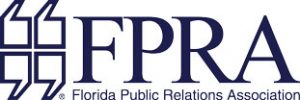FPRA developed the CPRC credential in 1974 to recognize advanced professional growth and achievement among senior-level PR practitioners. CPRC credential recognizes advanced PR counselors who have demonstrated the knowledge, skills and abilities to handle crisis situations and high stakes PR situations by thinking quickly and providing strategic PR counsel.
In order to earn the CPRC credential, PR practitioners must have 10 years of experience, be FPRA members in good standing and have earned the APR. Once earned, the CPRC credential stays with that member as long as they maintain their membership with FPRA.
The Value of Earning Certification
Certified Public Relations Counselors are distinguished as skilled PR practitioners with an advanced skillset. CPRCs are invited to join FPRA’s most elite networking and professional development group, the Counselors’ Network. In fact, a newly certified counselor’s first year of membership in the Counselors’ Network is free. This group meets virtually each month for an informal networking session and once a year for an exclusive small group conference, the CN Winter Symposium, with national caliber speakers and unique experiences.
About the Exam
The CPRC exam is a subjective evaluation that requires candidates to draw from their years of solid public relations planning, counseling and experience in applying the Research-Planning-Implementation-Evaluation (RPIE) method to solve problems and present solutions.
The exam consists of two sections: an essay-based written exam and an oral exam. They can be done in the order of the candidate’s choice.
Candidates must demonstrate persuasive counseling skills in the scenarios commonly faced by government agencies, corporations, nonprofit organizations and public relations firms.
Though no two candidates’ answers on the CPRC exams will be exactly alike, successful answers apply a strategic RPIE approach and address the key elements presented in each scenario.
Essay-Based Written Exam
The written exam consists of 14 case studies. Each question has an assigned length of time for answering ranging from 15 to 60 minutes. The time allotted for each question also represents the number of points possible for that question. For example: A 15-minute question is worth 15 points.
The written exam takes six hours in total to complete. This includes 2.5 hours for the first half of the exam, a required 1-hour lunch break, and 2.5 hours for the second half of the exam.
The total number of points possible on the written exam is 300. To pass, a candidate must score 210 points, which is equal to 70%.
The CPRC exam is peer-evaluated. Exams are graded by FPRA professionals who have earned the CPRC credential. Two CPRCs grade each exam. If both pass the candidate, the CPRC is awarded. If the graders disagree, the exam is sent to a third CPRC for grading. If the result is not a passing grade, the candidate will be asked to retake the written exam. Candidates are identified by a number, not their name, to protect their privacy. Graders are also kept confidential.
The Oral Exam
For the oral exam, the candidate must give a 20-minute presentation to a panel of certified evaluators, to be followed by a 10-minute question and answer session.
Seven days before the scheduled presentation, the candidate will receive three fictitious scenarios that pose a PR challenge for a company or organization. The candidate will choose a scenario and then make their presentation, approximately 20-minutes in length, as if presenting a recommendation to the company/organization leadership as specified in the scenario.
Candidates are evaluated based on their verbal communication skills, NOT on presentation materials. Presentation materials such as PowerPoint/Prezi/etc. are not required but may be used if desired.
A panel of three FPRA professionals who have earned the CPRC credential will evaluate the presentation. Items evaluated include the specific steps of RPIE, whether the candidate was persuasive and effective and the overall impression of the judges. Each item is scored between one and five for a total of 50 points. A candidate must score 35 points (70%) or more to pass.
Application & Fees
The cost of administering the CPRC exam is $350. Candidates will be invoiced after their application is submitted and accepted. Following acceptance to sit for the CPRC exam and payment of fees, candidates will be sent a digital CPRC Prep Guide. It is strongly recommended that this guide be reviewed before taking the exam.
FPRA offers candidates a $75 rebate following the passing of the oral and written portion of the exam. Some FPRA chapters also offer rebates in addition to the Association’s rebate. Candidates should inquire with their chapter’s Credentialing Chair for information on available chapter rebates and/or scholarships.
How to Prepare
Once your application and exam fees have been accepted, you will receive The CPRC Preparation Guide with more information about the exam, tips and sample questions. Your chapter Credentialing Chair will also begin working with you on readiness and scheduling.
How Do You Know if You Are Ready?
When you are thinking about pursuing the CPRC, you need to consider where you are in your career and what role you play within your organization or when working with clients. We have developed a resource to help you decide. The CPRC exam assesses the knowledge, skills and abilities employed when serving as a public relations counselor.
Most FPRA chapters have a Credentialing Chair that can provide additional information, and the current VP of Credentialing is also available to speak with candidates about the exam or the credentialing process. You can also contact the FPRA State Office. We look forward to helping you plan your credentialing journey and set a success path to becoming a Certified Public Relations Counselor.





